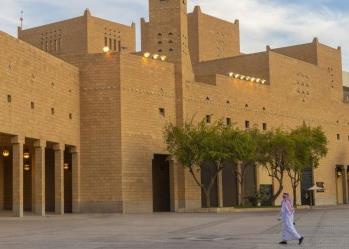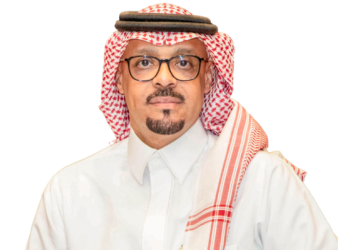
Long-term planning is becoming a deeper part of Riyadhs policymaking, along with boosting efficiency rather than public spending, says Al-Jasser
Saudi Arabia currently sits in an enviable fiscal position. The central bank the Saudi Arabian Monetary Agency has about $700bn in foreign assets. The economy is forecast to grow by 5.1 per cent this year, even as the contribution of the oil sector shrinks. Inflation is low. While other emerging markets worry about the impact of the withdrawal of quantitative easing programmes in the West, the kingdoms banks are awash with liquidity that is the result of a booming domestic economy, rather than loose monetary policies.
Long-term challenges
In the longer term, Riyadh faces some significant challenges. It must create jobs for its young population and diversify the economy. It must also take measures to address rising public spending and the governments reliance on oil sales to fund that spending. A key part of this will involve making more efficient use of Saudi Arabias resources, whether they are people or hydrocarbons.
Muhammad Al-Jasser, the kingdoms economy and planning minister, runs the body in charge of setting out Riyadhs long-term economic objectives. He says that while he does not subscribe to doomsday scenarios that paint a difficult future for the country, we take them very seriously.
We are in a wonderful fiscal and reserves position, he says. With the rate at which places such as India and China are growing, there will continue to be demand for oil. So, I am not that worried about what might happen with spending and growth over the next five years. But even with all the financing and oil and wherewithal, I think we should still be achieving higher levels of efficiency in the economy.
The aim is to generate growth through running [existing facilities] more efficiently
Riyadh is becoming much more cognisant of the gains that can be achieved through more efficient utilisation of our resources, says Al-Jasser. This is reflected in the increasingly long-term view the government is taking on development. Al-Jasser characterises this as the logical result of the deepening development process in Saudi Arabia. It is deepening because we are becoming better educated and more people in the country are trying to address these issues, he says.
It is not like it wasnt there before, it is just now becoming a deeper part of policymaking and we are much more aware of it and able to articulate it, he says. One of the Economy & Planning Ministrys key roles is to coordinate the various government authorities to ensure each one is cooperating and acting with an eye on the wider long-term development plan.
The ministry is currently working on Riyadhs 10th Development Plan, the strategic policy document for economic planning in the 2015-19 period. The five-year plan fits into a longer-term strategy for 2025, which aims to double real gross domestic product per capita and increase the quality of life for citizens. The strategy under the plan is to focus more on boosting efficiency, rather than driving growth through government spending.
Cutting expenditure
We cant continue with capital spending at current levels, there are only so many schools, roads and hospitals you can build, says Al-Jasser. The aim is to generate growth through running [existing facilities] more efficiently and getting more Saudi nationals to replace expatriates in the workforce. This will also mean more government spending is domestically utilised, rather than leaked out of the economy.
Although Al-Jasser says he has no problem with expatriates being in the kingdom or the remittances they make, he recognises the loss to the domestic economy that those outflows represent. As the proportion of Saudi nationals in the workforce increases, a multiplier effect is created as that money is used domestically, rather than sent abroad.
The issue is productivity, he says. In the past, we needed infrastructure and schools, and we need to continue investing in those, but to my mind now, we have a critical mass of infrastructure and the efficiency of using that is what is important. He adds that efficiency and productivity are the themes that I want to have a higher role in our 10th Development Plan. A key part of Al-Jassers vision is transitioning Saudi Arabia into a knowledge-based economy and he is well aware there is still some way to go to achieve this, including a requirement to change attitudes towards work, particularly in the public sector.
If you are not productive and competitive, you cant even talk about diversification
Al-Jasser: Riyadh should address the issue of subsidies
Official statistics suggest that in 2011, only one in 10 jobs in the private sector was held by a Saudi national, meaning that of the almost 8 million jobs in the sector, only about 850,000 were held by locals. In the public sector, the opposite is true. The public sector is absorbing the majority of Saudi labour, but the wage bill is not reflected in productivity, says Al-Jasser. He is also alert to the lost opportunity the low female participation rate in the workforce implies.
Handling subsidies
Efficiency and productivity are watchwords for Al-Jasser, themes he is constantly returning to. They touch on perhaps the two most sensitive issues in the Saudi economy: subsidies and employment. Subsidies, particularly when they go to unintended beneficiaries, tend to produce distortions in the economy, says the minister.
The extent of subsidies in the Saudi economy, and in particular their untargeted nature, is a misallocation of resources that can no longer be ignored, he adds. This is something we are fully aware of and are trying to address in a careful and deliberate manner.
For employment too, these two concepts are an important part of Al-Jassers thinking on how to get more of the Saudi workforce into jobs. The official unemployment rate among nationals was 12 per cent at the end of 2012, but is much higher among the youth. Among those aged 20-24, joblessness is more than 40 per cent. For females in that age bracket, about 70 per cent are unable to find work.
The issue for Al-Jasser is not necessarily job creation. We are creating jobs, just look at how many expatriates are here, he says. The issue is efficiency. If we become more efficient, then we dont need all of these [foreign workers]. Most of them are not well-educated English, US or Japanese scientists or engineers and the great majority of them are illiterate. What we want to do is enhance the knowledge content of these jobs and enhance the knowledge of the Saudi workforce, then match them at a higher level of competitiveness.
A key plank of Riyadhs attempts to tackle unemployment is the Nitaqat scheme, a system of incentives and penalties for firms to meet quotas for hiring Saudi nationals. The introduction of Nitaqat has been followed by a crackdown on illegal immigrants. With Nitaqat, we are going to every industry and saying this is the average Saudisation rate for your industry; if you are below the average you will be penalised and if you are above it you will be saluted, says Al-Jasser. Now, when those below the average move up, that means the average itself is moving up, so you are raising the average through a very market-based mechanism.
Boosting efficiency and productivity is an essential part of Al-Jassers vision for the further development and diversification of the economy. We need higher productivity, he says. The key to our economic success in the coming decade is productivity. With higher productivity you can get higher competitiveness, and if you have that, you can talk more seriously about diversification. If you are not productive and you are not competitive, you cant even talk about diversification.
Non-oil focus
Economic diversification in Saudi Arabia has evolved over the past decade, says the minister. At first, diversification meant building refineries to add more value to the economy, rather than simply exporting oil. This was followed by the shift into petrochemicals. Now, Al-Jasser sees diversification as moving into non-oil sectors, reducing the role of the government and allowing private enterprises to thrive. A key part of this will be ensuring private companies in the kingdom are globally competitive and not relying on government support or preferential treatment, he says.
Its a mindset we are seeking, says Al-Jasser. We want companies to be able to say they can sell their products overseas and compete in a global marketplace. If they think like that, they will have to act in a way that is not too reliant on government support.
If the government can succeed in implementing policies that enable the kingdom to increase employment and tackle subsidies, it will have gone a long way to reshaping the Saudi economy.
The potential to reap a huge demographic dividend from getting Saudi Arabias underemployed young population into high productivity jobs, replacing low-skilled expatriates, could transform the country. Already the biggest Arab economy, the potential for further expansion is vast if Riyadh can get its economic development policies right.
Career highlights
2011 Economy & Planning Minister
2009 Governor of Saudi Arabian Monetary Agency (Sama)
1995 Vice-governor and vice-chairman of Sama board
1990 Executive director for Saudi Arabia at the IMF
1986 Completed doctorate in economics at the University of California in the US
1981 Started career at Saudi Finance Ministry
1981 Completed masters degree in economics at the University of California
1979 Graduated with degree in economics from San Diego State University in the US
You might also like...

Contractors complete 25% of Neom spine tunnels
23 April 2024

Egypt private-to-private renewable scheme takes off
23 April 2024

Cayan Group to build Hilton hotel at Neom
23 April 2024

Kuwaiti environmental project ahead of schedule
23 April 2024
A MEED Subscription...
Subscribe or upgrade your current MEED.com package to support your strategic planning with the MENA region’s best source of business information. Proceed to our online shop below to find out more about the features in each package.








